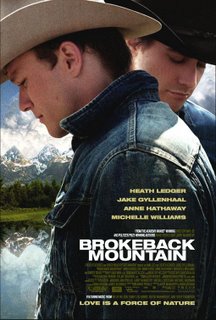 In the early nineteenth century, on the American frontier, in a society where contact with women was limited, it was common for young men, after leaving home but before marriage, to pair off and form a special bond. As Anthony Rotundo explains in American Manhood, these friends helped each other weather the storms of their age. They gossiped, philosophized, and fretted to one another. One such pair of special male friends, Daniel Webster and James Harvey Bingham, addressed each other as "Lovely Boy" and "Dearly Beloved." "My heart is now so full of matters and things impatient to be whispered into the ear of a trusty friend," Webster wrote to Bingham, "that I think I could pour them into yours till it ran over." Compare this with Abraham Lincoln's message to Joshua Speed: "You know my desire to befriend you is everlasting -- that I will never cease, while I know how to do any thing." The two were bedmates, allies, and confidants. Many people who knew Lincoln said it was a relationship that had no par in his life. Speed himself said, "No two men were ever more intimate."
In the early nineteenth century, on the American frontier, in a society where contact with women was limited, it was common for young men, after leaving home but before marriage, to pair off and form a special bond. As Anthony Rotundo explains in American Manhood, these friends helped each other weather the storms of their age. They gossiped, philosophized, and fretted to one another. One such pair of special male friends, Daniel Webster and James Harvey Bingham, addressed each other as "Lovely Boy" and "Dearly Beloved." "My heart is now so full of matters and things impatient to be whispered into the ear of a trusty friend," Webster wrote to Bingham, "that I think I could pour them into yours till it ran over." Compare this with Abraham Lincoln's message to Joshua Speed: "You know my desire to befriend you is everlasting -- that I will never cease, while I know how to do any thing." The two were bedmates, allies, and confidants. Many people who knew Lincoln said it was a relationship that had no par in his life. Speed himself said, "No two men were ever more intimate."Temperamental similarities probably deepened their tie. Both young men were melancholy, and drawn to the reflections of poetry and philosophy. Both were ambitious and had what Lincoln pronounced "the peculiar misfortune . . . to dream dreams of Elysium far exceeding all that any thing earthly can realize." An expansive Speed once described himself "like the rich fruit of the tropicks that bursts its vine because of its richness and luxurance -- or like a tea kettle that is lifting its top and losing its contents by the constant boiling and evaporation within. -- or like a china pitcher filled with ice water and oozing through the glass." Lincoln noted how, in his friend, "excessive pleasure" was sometimes accompanied "with a painful counterpart at times." They took turns consoling each other when the bottom fell out.
Because Lincoln and Speed were so intimate, and shared a bed, people sometimes assume they were homosexual. The conversation has been amplified in recent years. In 1999, the playwright Larry Kramer declared that Lincoln and Speed were lovers, quoting newly found Speed documents to prove it. News spread around the world of what the Independent of London called Lincoln's "outing." But Kramer has since quietly gone on record admitting that he invented the documents for a work of fiction. More recently, the late sex researcher C.A. Tripp concluded, in The Intimate World of Abraham Lincoln, that Lincoln measured a "5" on the Kinsey scale, where "1" is entirely heterosexual and "6" is entirely homosexual. That assertion, too, has more bluster than substance. Tripp's evidence adds up to the fact that Lincoln spent a good deal of time with men, sometimes sharing beds with them and often expressing fondness for them. On this basis, precious few men in the early nineteenth century would not be called gay.

3 comments:
What I find so interesting in all that you've posted, is that you are aware that you have a personality disorder, and the pain that it causes you bleeds through all that you write. That's more than one can say for those with the same diagnosis. You seem to prefer your fantasies, and what enables you to do that is by staying "interior," so that you're mostly interested in having a relationship with yourself with this virtual you. Reckon with reality, and your pain may be too great, but that provides the impetus to change. Well, anyway, insight is the popcorn of therapy!
I wish you every success that you think has/is eluding you. You seem a very bright and interesting man--too bad only those that read your blog are likely to know it.
---signed sonofashrink, strictly armchair
Apparently Lincoln, upon seeing that other "odd case" What Whitman, is said to have remarked: "Well he looks like a man."
typo What=Walt
Post a Comment